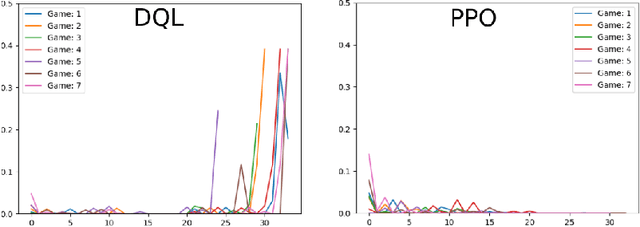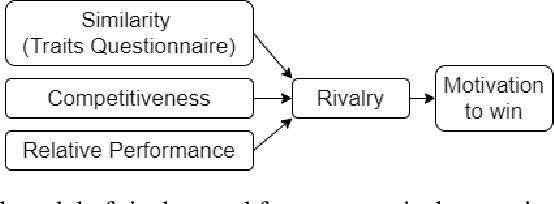Incorporating Rivalry in Reinforcement Learning for a Competitive Game
Paper and Code
Aug 22, 2022

Recent advances in reinforcement learning with social agents have allowed such models to achieve human-level performance on specific interaction tasks. However, most interactive scenarios do not have a version alone as an end goal; instead, the social impact of these agents when interacting with humans is as important and largely unexplored. In this regard, this work proposes a novel reinforcement learning mechanism based on the social impact of rivalry behavior. Our proposed model aggregates objective and social perception mechanisms to derive a rivalry score that is used to modulate the learning of artificial agents. To investigate our proposed model, we design an interactive game scenario, using the Chef's Hat Card Game, and examine how the rivalry modulation changes the agent's playing style, and how this impacts the experience of human players in the game. Our results show that humans can detect specific social characteristics when playing against rival agents when compared to common agents, which directly affects the performance of the human players in subsequent games. We conclude our work by discussing how the different social and objective features that compose the artificial rivalry score contribute to our results.
 Add to Chrome
Add to Chrome Add to Firefox
Add to Firefox Add to Edge
Add to Edge